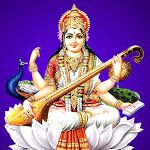Friar Julian | The Customs of the Chinese and their Worship | A Review
The Customs of the Chinese and their Worship
Friar Julian’s ‘The Customs of the Chinese and their Worship’-A Review
Friar Julian’s travel book “The Customs of the Chinese and their Worship” provides an interesting and insightful look into Chinese culture during the late 16th century. Written by a Spanish Franciscan missionary who lived and worked in China for over 20 years, the book offers a unique perspective on Chinese society and its customs, as seen through the eyes of a foreigner.
One of the strengths of the book is the detailed and comprehensive descriptions of various aspects of Chinese culture, including religion, social customs, language, and daily life. Friar Julian provides detailed accounts of the various religious practices and beliefs of the Chinese people, including their veneration of ancestors and worship of various gods and goddesses. He also describes their customs related to marriage, birth, death, and other important life events, as well as their language and writing system.
Another notable aspect of the book is the author’s sympathetic and respectful portrayal of the Chinese people and their culture. Despite his status as a missionary and his desire to convert the Chinese to Christianity, Friar Julian demonstrates a deep respect for the Chinese way of life and their beliefs. He recognizes the value of Chinese culture and history and seeks to understand and appreciate the customs and traditions of the people he encounters.
At the same time, however, the book has some limitations and flaws. For one thing, the author’s perspective is inevitably colored by his own background and biases as a European Christian. This means that some aspects of Chinese culture may be misunderstood or misinterpreted, and the author’s descriptions may be influenced by his own religious beliefs and values.
Additionally, the book was written during a time of intense political and cultural conflict between China and Western powers, and this context may have influenced the author’s perspective and portrayal of the Chinese people. The book can be read as an attempt to bridge the gap between two very different cultures, but it can also be seen as part of a larger project of Western imperialism and domination.
Overall, Friar Julian’s “The Customs of the Chinese and their Worship” is a valuable and interesting document that offers important insights into Chinese culture and society during the late 16th century. While the book is not without its limitations and flaws, it remains an important resource for anyone interested in the history and culture of China, and a testament to the power of cross-cultural understanding and respect. 0 0 0.
Friar Julian The Customs of the Chinese and their Worship A Review
N.B. The article originally belongs to the book entitled ‘Reviews of Some Iconic Travelogues‘ by Menonim Menonimus.
Books of Literary Criticism by M. Menonimus:
- World Short Story Criticism
- World Poetry Criticism
- World Drama Criticism
- World Novel Criticism
- World Essay Criticism
- Indian English Poetry Criticism
- Indian English Poets and Poetry Chief Features
- Emily Dickinson’s Poetry-A Thematic Study
- Walt Whitman’s Poetry-A Thematic Study
- Critical Essays on English Poetry
- Tawfiq al-Hakim’s Novel: Return of the Spirit-An Analytical Study
- Tawfiq al-Hakim’s Novel: ‘Yawmiyyat Naib Fil Arayaf’-An Analytical Study
- Analytical Studies of Some Arabic Short Stories
- A Brief History of Arabic Literature: Pre-Islamic Period (500 AD-622 AD)
- A Brief History of Arabic Literature: Early Islamic Period (622 AD-661 AD)
- Reviews on William Shakespeare’s Works
- Reviews of John Milton’s Literary Works
- Reviews of Some Iconic Travelogues …
Additional Searches:











